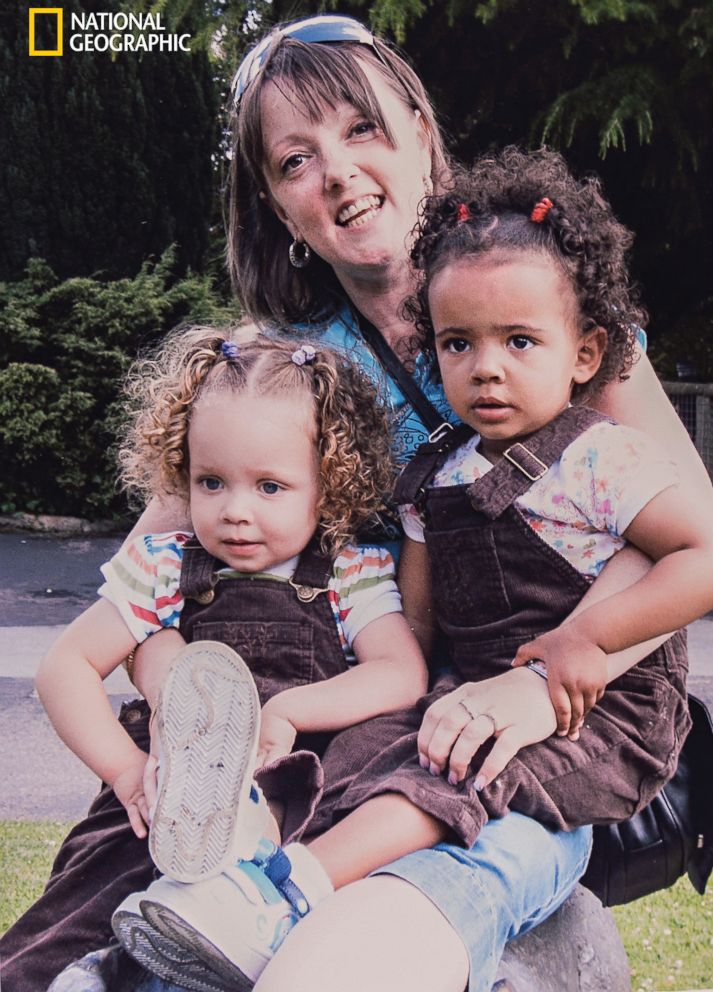'One-in-a-million' biracial twins won't let race define them: 'You don't always have to blend in'
Marcia and Millie Briggs say "you don't always have to blend in."
Marcia and Millie Biggs, 11, are like any other sisters: attached at the hip and protective of each other. But they are often mistaken by strangers as best friends, not twin sisters.
That's because Marcia has pale skin, big blue eyes and blonde hair. Her fraternal twin sister Millie is slightly taller, has darker skin, brown eyes and hair just like Marcia's – only jet black.
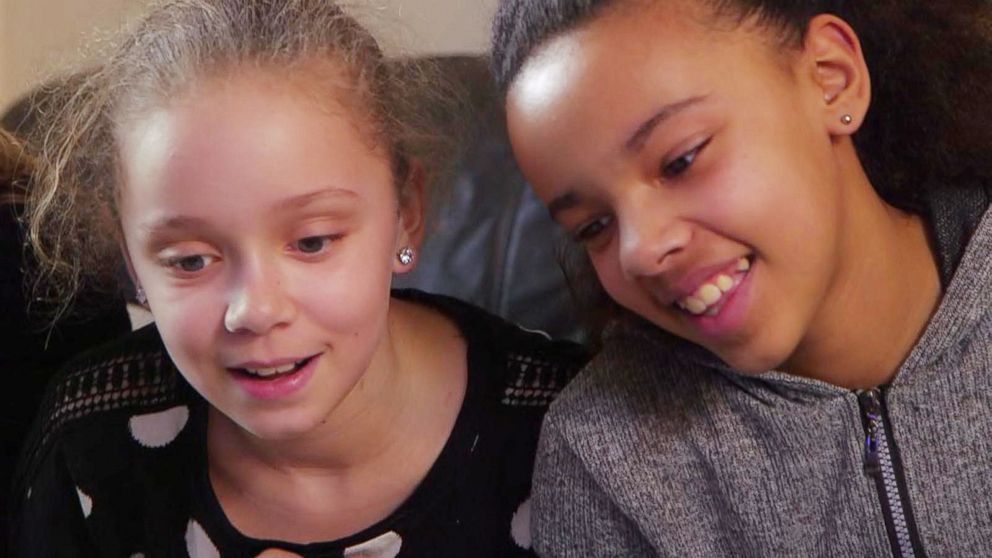
“Sometimes people don’t believe us when we say we are twins," Marcia told "Good Morning America." "They think we're just telling a lie."
The twins are also featured on the April issue of National Geographic magazine.
'One-in-a-million'
When they were born, the girls, who live in Birmingham, England, originally looked identical, according to their parents Amanda and Michael Biggs. At 10 months old, the Biggs noticed a change in their daughters' complexions.
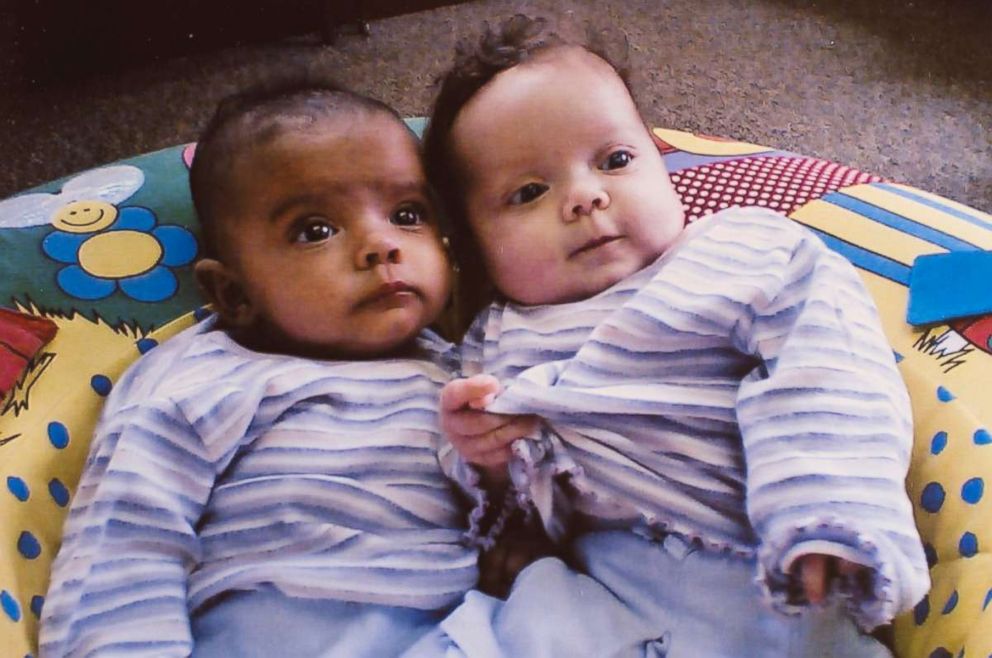
"The change happened with Millie first. She went darker and darker," said Michael Biggs, who has black hair and brown skin, stemming from his Jamaican descent.
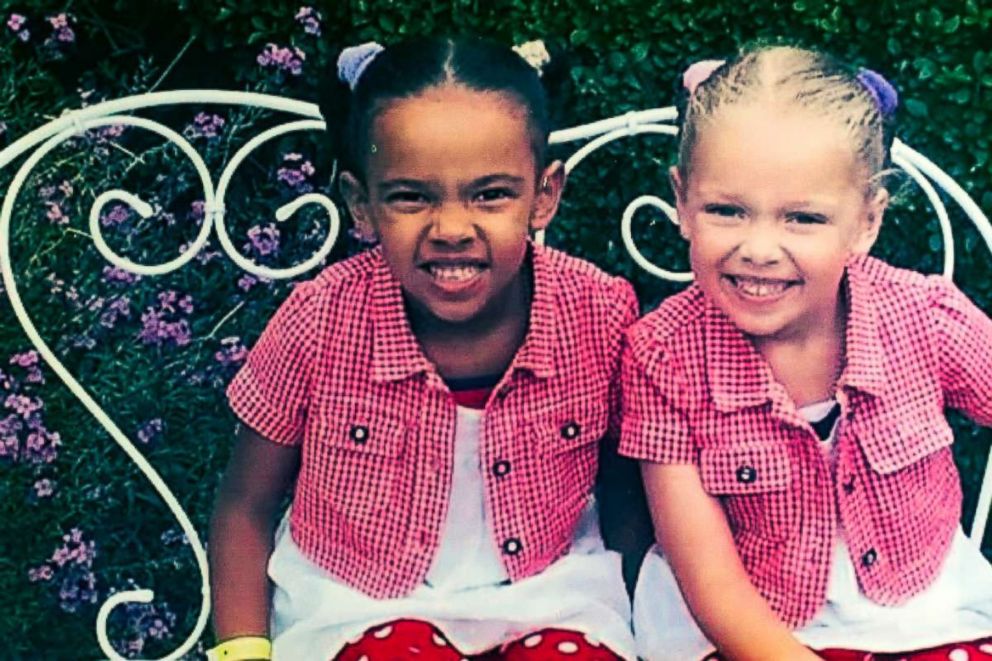
Fraternal twins, or non-identical twins, are the result of the mother releasing two eggs at the same time, both of which are fertilized by two different sperm. As a result the embryos share 50 percent of the same DNA with each other, making them no more alike than any other sibling.
But the genetic makeup of Millie and Marcia has resulted in each twin predominately taking after one of their parents -- Marcia after her mother, and Millie after her father.
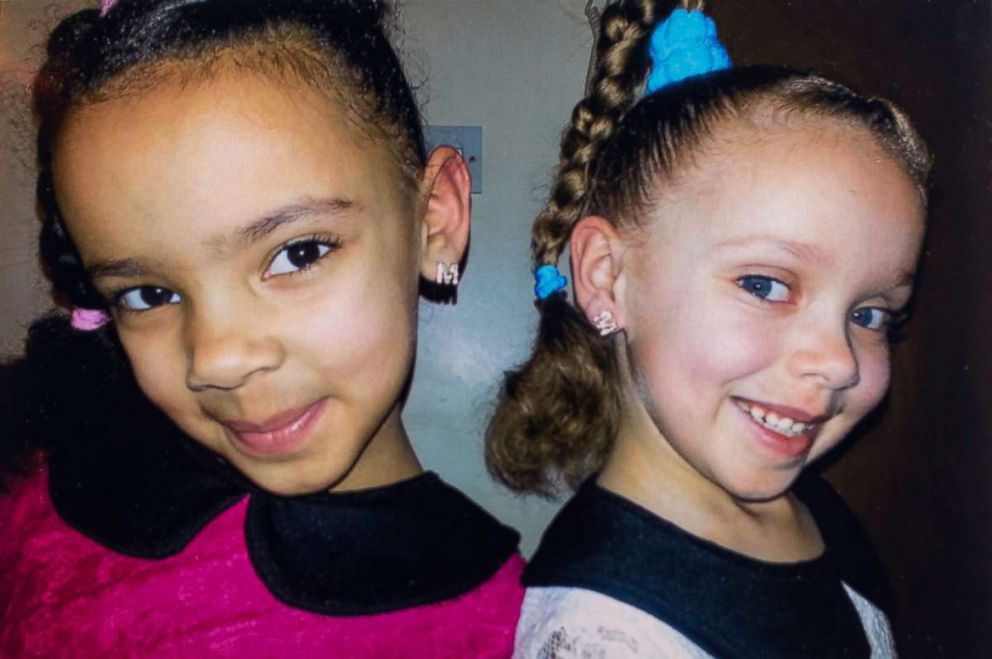
“Marcia is a bit of a tomboy. She loves her gymnastics and prefers the color blue," said Amanda Biggs. "But Millie is the princess – she loves pink and all things bling. She's a bit like her mother in that way."
Amanda Biggs calls the girls her “one-in-a-million” miracle.
It's this uniqueness that caught the eye of National Geographic magazine for its April issue on race. The twins' photo appears alongside the headline: “Black and White. These twin sisters make us rethink everything we know about race.”
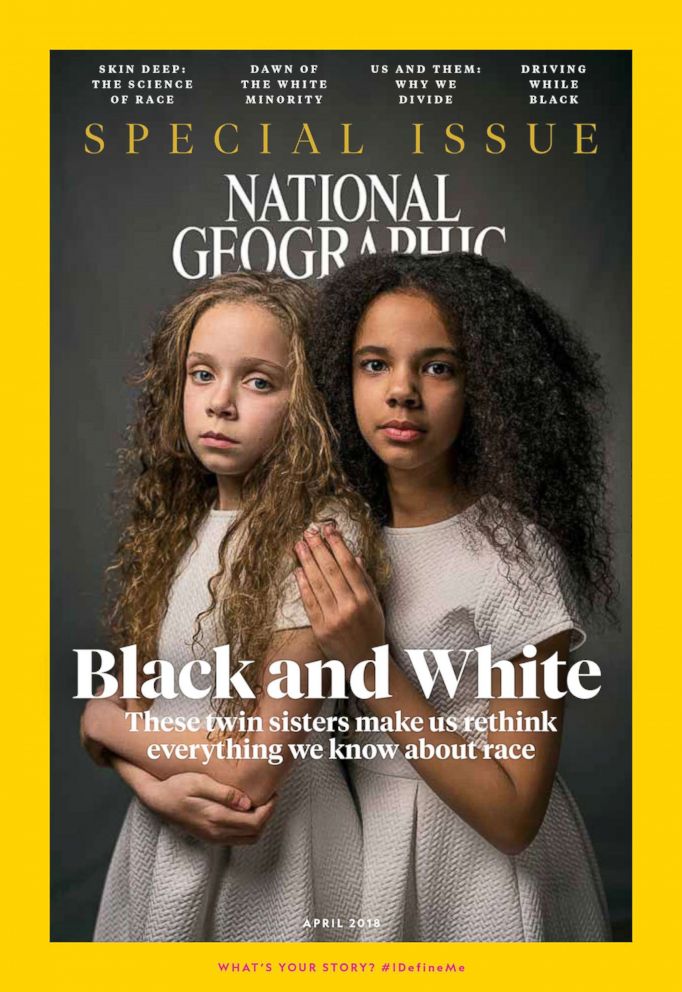
"Racism is where someone judges you by your color and not by your actual self," Millie said.
She continued, "I prefer to be different. You don't always have to blend in the crowd because if you do you won’t get noticed. It’s better to be you."
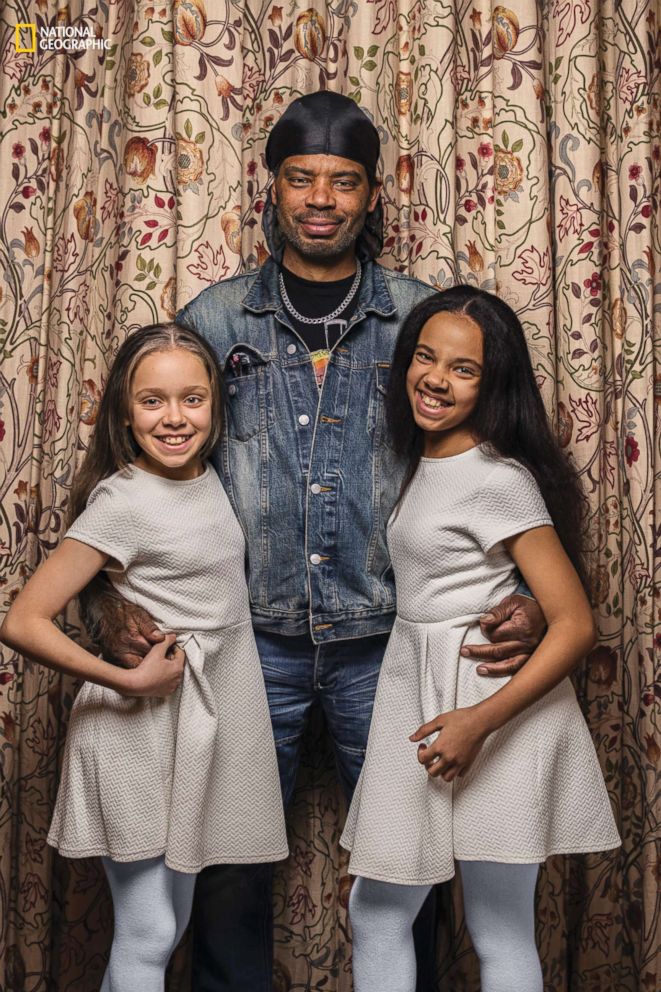
The girls said they feel "proud" to see their faces on newsstands around the world.
"I’m proud of us,” Marcia said, looking at her sister. “It’s not every day you’ll see yourself on a magazine. It looks so bold ... I feel special being on the front cover.”
The twins later showed "Good Morning America" videos of the two of them goofing around on music.ly, an iPhone app that lets users record videos. Coordinated, upbeat and totally synchronized, the girls are clearly happiest and most comfortable when on their own, having fun as any sisters do.
“They’re just that,” said Michael Biggs. “They just don’t see things in black and white."
